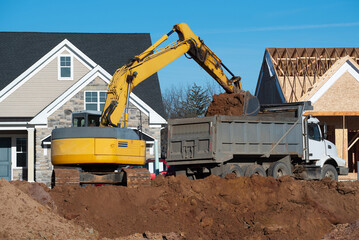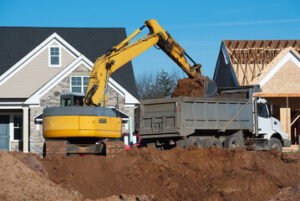Plumbing is the work of professionals who install, repair, and maintain pipes, fixtures, and appliances that supply water or remove waste in residential and commercial buildings. This work often requires a considerable amount of manual labor.

One way to help prevent plumbing problems is to be vigilant about monitoring your water meter. If the number of gallons you use drops suddenly, that could indicate a broken pipe or leak.
Trees are a beautiful addition to any landscape, providing shade and ambiance while offering an array of benefits. Unfortunately, they can also cause problems with your home’s plumbing when their roots invade and damage sewer lines. Understanding how tree roots impact your sewer system and how to spot potential problems can help you protect your property and save money on costly repairs.
Tree roots are drawn to the water and nutrients found in sewer lines, often entering through small cracks or weak joints in the pipe. Once inside the line, they can continue to grow rapidly, creating a web-like structure that traps waste and causes severe blockages. In some cases, the pressure from root growth can even cause the pipe to rupture.
Ignoring signs of tree root intrusion can lead to expensive and hazardous consequences, including complete pipe blockages, sewage backups into your home, and widespread property damage. The good news is that early detection can be relatively simple, with the first signs usually being slow draining or gurgling sounds from your plumbing.
In the case of serious damage, professional sewer repair services may be required, especially if your pipes are made from fragile or outdated materials. Using traditional excavation methods or cutting-edge Cured-In-Place Pipe (CIPP) technology, plumbers can replace or reline the damaged sewer line, making it more resistant to infiltration by tree roots.
There are a few DIY hacks you can try before calling in the pros, including pouring copper sulfate crystals or rock salt down your toilet drains to kill and dehydrate the roots. However, be warned that these solutions only provide temporary relief and are not a substitute for a full, long-term repair solution.
If you are concerned about your sewer maintenance, call the experts at Titan Plumbing for an inspection. Using video inspection cameras, we can explore the depths of your sewer line to confirm the presence of tree roots and develop a targeted and effective solution to the issue. Our technicians use a variety of tools and techniques, from mechanical rooters to hydro jetting, to cut and remove the invading roots and restore your sewer line to its full function.
Grease
Grease lubricants are widely used for lubricating mechanical systems that cannot be supplied with liquid lubricants. They consist of oil, a thickener and additives. The base oil is the fluid component of a grease formulation and exerts significant influence on its behavior in different environments. The thickener acts as a sponge that holds the grease together. Additives are optional components that modify the performance of a grease by suppressing existing undesirable properties or imparting new ones. These include oxidation inhibitors, corrosion inhibitors, extreme pressure additives and anti-wear additives.
Nonpolar greases are able to resist the effects of water because they contain hydrocarbon chains that cannot dissolve in water. They are typically used in high-temperature environments, such as those found in the automotive industry. Nonpolar greases do not need to be relubricated as often as polar greases, but they must be disposed of properly because they can cause sewer clogs if discarded improperly.
The most common lubricating greases use mineral oil as their base oil. However, synthetic base oils can offer better stability under a variety of temperatures and conditions. The type of thickener used also influences the performance of a grease, with complex soaps (also known as functional soaps) providing the best results in most applications. Nonsoap thickeners, such as bentonite and silica aerogel, are gaining popularity in specialty applications. They are capable of forming an adsorbent layer on metal surfaces and reducing friction.
The consistency of a grease is measured by cone penetration, a device described in ASTM D217 and D1403. The device consists of a freely moving cone and shaft assembly with a pedestal to place the grease sample beneath it. The depth to which the cone sinks into the grease is measured in tenths of a millimeter and reported as the penetration number. The NLGI has established consistency numbers, or grade numbers, from 000 to 6, corresponding to specific levels of penetration. Penetration is a measure of a grease’s hardness and its ability to resist deformation by shear stress.
Disposable items
A disposable item is one that is used once and then thrown away. They are often less expensive than multi use items. They are also more environmentally friendly because they do not require the energy and resources needed to wash, bleach, iron, and re-use. They are a good choice for health, leisure and hospitality industries as they create a clean, hygienic impression with customers and patients.
Many things that people flush down the toilet can be harmful to sewers, especially if they are labeled as “flushable.” Despite what manufacturers claim, wipes (baby, personal hygiene and disinfecting), cotton swabs, rags/towels, paper towels and other trash should never be flushed. They may clog pipes and jam sewer pumps, resulting in costly repairs for the homeowner and the city.
It is important to know that FOG and other damaging products can be disposed of by pouring them into a drain, sink or garbage disposal only after they have cooled. It is also crucial to place a wastebasket in the bathroom to collect miscellaneous debris, such as food scraps and grease from pots and pans before washing them.
By properly disposing of items, including those that can be poured down the drain, you can save yourself money and help prevent costly sewer maintenance and repairs. FOG and other damaging materials can cause backups that disrupt sewer use, damage homes and businesses, and impact the overall system.
Garbage disposals
Garbage disposals are a kitchen convenience, but they can also be a big problem for sewer lines. Garbage disposals use a motor to grind food waste into fine particles that can easily flow down the drains. Many sewer systems, however, are not equipped to handle this direct food waste. Even for those on septic systems, the extra solid waste can lead to increased pumping needs. Choosing the right disposal and understanding how to best utilize it can help reduce these issues.
Garbage disposals can be a great way to repurpose food scraps that would otherwise go in the trash, but they should only be used for this purpose. They are not designed to grind up meat, bones or other hard objects that could damage the grinder blades or impellers. Putting these types of items in the disposal can lead to jams, clogs and other malfunctions. In addition, some fatty foods like eggshells or vegetable peels can create a sticky residue that may block the drain.
In addition to being able to reduce the amount of garbage that is created, using the disposal correctly can help keep your drains and pipes free of debris and odors. Running cold water while the disposal is operating helps to prevent clogs and other problems, and a good cleaning routine can help prolong its life. Using a commercial drain cleaner or baking soda occasionally can help keep the disposal clean and fresh.
A common cause of clogs and backups is improper disposal habits. There are several things that should never be put down a disposal, including fibrous or stringy foods such as celery stalks, corn husks and asparagus; hard objects like bone fragments, fruit pits or nutshells; and oils or grease.
It is important to be mindful of what is being put down the disposal and to have regular maintenance by a professional plumber. Incorporating these habits into daily living can help homeowners avoid septic system and plumbing problems.



